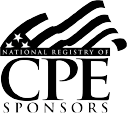For any business owner, succession planning stands as a defining moment, one where securing their legacy and employees’ future depends on making the right decisions. Smooth transitions or uncertainties and costly mistakes – the outcome rests on this critical juncture. At the heart of every successful journey lies a vital element: accurate and reliable business valuations.
But where do you find the expertise and assurance needed to avoid costly missteps in this complex landscape?
BCAs as Partners in Navigating Your Future
Business certified appraisers (BCAs) aren’t simply valuation professionals; they’re partners in your succession planning journey. Bound by the rigorous ethical and professional standards of the Uniform Standards of Professional Appraisal Practice (USPAP), they bring unparalleled credibility and rigor to your valuation needs. Throughout this article, we’ll delve into the four pillars of successful succession planning: pricing, financing, estate planning, and buy-sell agreements. In each, we’ll showcase how BCAs, guided by USPAP principles, deliver the clarity and confidence you need to make informed decisions and easily navigate every challenge.
Pricing the Business: Navigating the Valuation Maze
Imagine standing at the threshold of selling your prized business. Will you overvalue it, leaving potential buyers discouraged? Or undervalue it, shortchanging yourself and your legacy? This is where a BCA acts as your expert guide, utilizing USPAP-compliant methods to:
- Analyze market trends and comparable businesses: USPAP requires a comprehensive review of relevant market data, ensuring your valuation reflects current dynamics and isn’t skewed by personal biases.
- Craft a customized approach: From income to market to asset-based methods, BCAs utilize USPAP guidelines to choose the approach that best captures your business’s unique strengths and potential.
- Deliver a defensible and transparent report: USPAP standards demand clear documentation of data sources, valuation methodologies, and assumptions, providing stakeholders with confidence and minimizing room for future disputes.
This level of professionalism and adherence to USPAP principles ensure your business is priced fairly and realistically, attracting the right buyers and setting your succession planning on a firm footing.
Financing the Transition: A Bridge Built on Trustworthy Appraisals
Securing financing for a succession plan transition can be daunting. Lenders demand reliable valuations to mitigate risk and make informed decisions. Here’s how BCAs come to your rescue:
- USPAP-compliant valuations provide lenders with the confidence they need: By adhering to ethical and transparent practices, BCAs ensure lenders feel secure in the accuracy and defensibility of the valuation, making them more likely to approve financing.
- Structured financing packages: Beyond just a value, BCAs can help you build a financing package that aligns with your goals and the buyer’s capacity. Their USPAP-guided analysis provides insights into cash flow, repayment potential, and potential risks, empowering informed financial decisions.
- Minimizing roadblocks with clear communication: USPAP emphasizes transparency and clear documentation, preventing misunderstandings and delays throughout the financing process.
With a USPAP-compliant valuation from a BCA in hand, you can confidently approach lenders, secure the necessary financing, and smoothly navigate the financial aspect of your succession plan.
Estate Planning: Preserving Your Legacy with Equitable Valuations
Passing your business through family generations can be fraught with emotional complexities and potential tax burdens. Here’s how BCAs ensure a smooth and equitable succession plan transition:
- Tax optimization through accurate valuations: USPAP guides BCAs in meticulously assessing your business’s value, minimizing your potential tax liabilities during estate planning. This allows you to preserve more of your legacy for future generations.
- Fair and equitable asset distribution: With USPAP standards as their compass, BCAs ensure consistent and objective valuations of all assets within your business, minimizing the risk of conflict and resentment among heirs.
- Family-business expertise: Many BCAs possess specialized knowledge of family-owned businesses. They can navigate the unique dynamics and emotional considerations specific to such transitions, ensuring a harmonious and successful handoff.
Including a USPAP-compliant valuation from a BCA in your estate plan protects your legacy and minimizes tax burdens. This ensures a smooth and equitable transfer of your business within your family.
Buy-Sell Agreements: Safeguarding the Future with Objective Valuations
Buy-sell agreements are crucial for protecting all parties involved in a succession plan transition. But poorly conceived agreements can lead to conflict and financial hardship down the line. Here’s how BCAs help ensure fairness and stability:
- Independent and objective valuations: USPAP mandates ethical conduct and unbiased judgment, guaranteeing that BCAs deliver valuations free from personal interests or emotional influences. This instills trust and confidence in all parties involved.
- Dispute resolution mechanisms: USPAP guidelines encourage clear and transparent valuation reports. This transparency, combined with the objectivity of a BCA’s evaluation, provides a strong foundation for dispute resolution mechanisms within the buy-sell agreement.
- Mitigating future uncertainties: Business continuity arrangements (BCAs) analyze potential scenarios based on current market data and USPAP-compliant methods. This analysis helps craft buy-sell agreements that are reliable and enforceable, even in unexpected situations.
A USPAP-compliant valuation from a BCA empowers you to approach lenders confidently. This professional assessment secures the necessary financing, smoothing your succession plan’s financial aspect.
Join us on Feb. 28, 2024 at 1:00 PM (ET) for a webinar entitled, USPAP, Why? The webinar will cover USPAP is the generally recognized ethical and performance standards for the appraisal profession in the United States. Adopted by the United States Congress in 1989, USPAP (Uniform Standards of Professional Appraisal Practice) sets standards for all types of appraisal services. These include real estate, personal property, business, and mass appraisal.
Are you looking to pursue a Business Certified Appraiser (BCA) credential? Visit ISBA Learning today. ISBA Learning is the home to our certifications and online courses. The Learning site also includes 100+ learning resources, including express courses, live and on-demand webinars, publications and reports, articles, templates, and worksheets!
Check out these self-paced courses:











